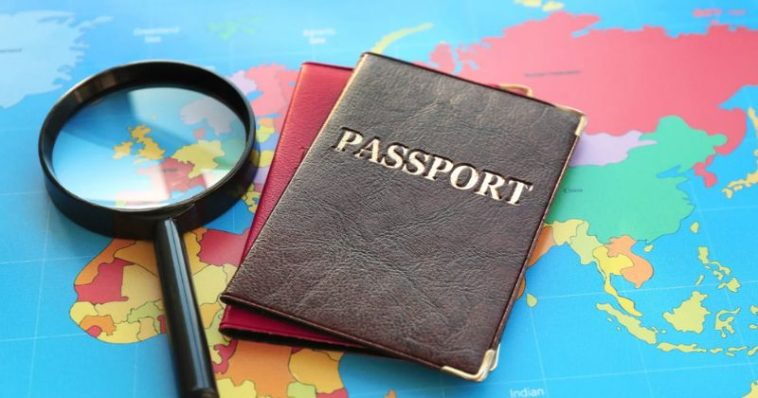Exploring new cultures, landscapes, and experiences through international travel is an exciting opportunity. However, navigating unfamiliar customs, languages, and logistics can be challenging without proper preparation. Understanding key aspects such as local etiquette, transportation options, and essential travel documents helps create a smoother and more enjoyable journey.
Thorough planning is key to a successful first-time international travel experience. From researching destinations and budgeting to efficient packing and embracing cultural immersion, every step enhances the journey. Reflecting afterward provides valuable insights, fostering growth and confidence for future global adventures.
12 Tips for Smooth First-Time International Travel
1. Research and Preparation
Understanding a destination’s culture, customs, and etiquette enhances the travel experience. Travel blogs, cultural guides, and forums offer valuable insights, while government websites provide updated entry requirements, visa policies, and safety advisories. Ensure your passport is valid for at least six months beyond your return date, and keep digital copies of essential documents for added security.
Example: If you’re visiting Japan, learn key customs like bowing instead of handshaking, removing shoes indoors, and keeping quiet on public transport. Travel blogs like Japan Guide and forums like r/JapanTravel offer helpful tips, while the official tourism site provides visa and entry updates. Ensure your passport meets validity requirements and store digital copies of essential documents for easy access. Proper preparation ensures a respectful and hassle-free trip.
2. Financial Planning
A well-planned budget covering flights, accommodations, meals, transportation, and activities helps manage expenses effectively. Travel budget apps provide real-time tracking to stay within financial limits. Understanding exchange rates and international banking fees prevents unexpected costs, while withdrawing local currency from ATMs or exchanging money at reputable locations ensures better rates. Opting for a travel-friendly credit card with no foreign transaction fees maximizes savings and convenience.
Example: For a family trip to Thailand, set a budget covering flights, stays, meals, transport, and activities like island tours. Use apps like Trail Wallet or Tripcoin to track expenses. Check the Thai Baht’s exchange rate and use ATMs or trusted exchange centers for better rates. Ensure your bank card works internationally, or get a no-fee travel credit card. These steps keep your finances in check for a hassle-free trip.
3. Health and Travel Insurance
Visit a travel health clinic to check the required vaccinations and health precautions. Carry copies of vaccination records and necessary medications. Travel insurance is essential, covering medical emergencies, trip cancellations, and lost luggage. Choose a policy that aligns with your activities and includes COVID-19 coverage. Research nearby hospitals and emergency contacts at your destination.
Example: If you’re traveling to Costa Rica, visit a travel health clinic for recommended vaccines like Hepatitis A and Typhoid. Carry physical and digital copies of vaccination records and enough prescription medications. Get travel insurance covering medical emergencies, lost baggage, and cancellations—especially if you plan activities like zip-lining. Ensure your policy includes COVID-19 coverage. Research local hospitals like CIMA in San José and note emergency contacts, including your embassy’s number. These steps will help you stay safe and enjoy your trip stress-free.
4. Packing Essentials
Pack strategically based on the climate, cultural norms, and planned activities. Essentials include versatile clothing, comfortable footwear, toiletries, medications, and travel adapters. Rolling clothes saves space, while packing cubes keeps items organized. Bring noise-canceling headphones, a power bank, and a travel pillow for comfort during long flights. Checking airline baggage policies in advance helps avoid unexpected fees.
Example: An outdoor adventure in Iceland requires warm, waterproof layers, sturdy hiking boots, and a universal adapter. Packing cubes enhance organization, and rolling clothes maximizes luggage space. Comfort essentials like noise-canceling headphones and a travel pillow make the journey smoother. Thoughtful packing ensures a hassle-free and enjoyable trip.
5. Airport and Flight Navigation
Arriving at the airport 2-3 hours before departure ensures a stress-free check-in and security process. Reviewing airline baggage restrictions in advance helps prevent last-minute surprises. Staying hydrated, wearing comfortable clothing, and adjusting your sleep schedule to the destination’s time zone can minimize jet lag. Upon arrival, follow signs for immigration, baggage claim, and customs to navigate smoothly.
Example: If you’re flying to London, arrive at the airport 2-3 hours early for check-in and security. Check baggage restrictions to avoid surprises, wear comfortable clothing, and stay hydrated. Adjust your sleep schedule before departure to reduce jet lag. Upon arrival, follow airport signs for immigration, baggage claim, and customs for a smooth entry. Planning ensures a stress-free trip!
6. Accommodation and Local Transportation
Hotels, hostels, and vacation rentals offer different experiences and budgets—reading reviews helps make informed choices. Public transportation and ride-sharing services provide affordable ways to explore. Navigation apps like Google Maps and offline maps assist with transit options. Learning basic local phrases enhances communication with drivers and locals.
Example: If you’re visiting Paris, a vacation rental near the city center offers a local feel, while hostels suit budget travelers. Check reviews on TripAdvisor or Booking.com to find the best fit. Use the Metro for affordable transport or Uber for convenience, and download Google Maps for easy navigation. Learning basic French phrases like “Bonjour” (Hello) or “Merci” (Thank you) can enhance interactions and make your trip more enjoyable!
7. Cultural Awareness and Engagement
Respecting local customs, dress codes, and tipping practices fosters positive interactions. Learning simple greetings in the local language shows appreciation for the culture. Participating in local traditions, visiting historic sites, and engaging in cultural experiences enrich your trip. Translation apps and phrasebooks help bridge language barriers.
Example: If you’re traveling to India, respect local customs by removing shoes before entering temples or homes and dressing modestly at religious sites. Learning simple Hindi greetings like “Namaste” (Hello) shows appreciation for the culture. Participate in traditions like Diwali celebrations or visit iconic sites like the Taj Mahal for a more profound cultural experience. Using translation apps or a phrasebook can also make interactions more meaningful, enhancing your journey!
8. Culinary Exploration
Sampling local cuisine is a highlight of travel. Research popular dishes and explore street food markets for authentic experiences. If you have dietary restrictions, carrying an allergy card with translated details helps communicate your needs. Food tours and cooking classes provide deeper cultural insights.
Example: If you visit Italy, savor authentic dishes like pizza in Naples, pasta in Rome, and gelato in Florence. Explore vibrant food markets like Mercato Centrale for local flavors. If you have dietary restrictions, carry an Italian-translated allergy card for easy communication. Enhance your experience with a food tour or a pasta-making class to immerse yourself in Italy’s rich culinary culture!
9. Safety and Security
Awareness of surroundings helps minimize the risk of scams and theft. Using anti-theft bags or money belts enhances security for valuables. Keeping emergency contacts readily available and knowing local emergency numbers ensures quick access to assistance if needed. Carrying a basic first aid kit helps manage minor health concerns while traveling.
Relying on intuition is essential—if a situation feels unsafe, it’s best to leave. Staying in well-lit, populated areas and avoiding risky situations add extra precaution. Thoughtful preparation and vigilance contribute to a safer and more enjoyable travel experience.
Example: If you’re visiting Barcelona, stay alert for pickpockets in busy spots like Las Ramblas. Use an anti-theft bag, secure valuables, and consider a money belt for extra protection. Save emergency numbers like 112 and note your embassy’s contact details. Pack a small first aid kit with essentials for minor issues. Trust your instincts and stay aware to ensure a safe and enjoyable trip!
10. Sustainable Travel Practices
Eco-friendly choices, like using reusable bottles and supporting local businesses, promote responsible tourism. Choosing sustainable accommodations and reducing plastic waste minimizes environmental impact. Respecting cultural and natural sites ensures their preservation for future travelers.
Example: If traveling to Bali, choose eco-friendly accommodations like lodges that use renewable energy and bring a reusable water bottle to reduce plastic waste. Support local businesses by shopping for handmade crafts and dining at locally-owned restaurants. When visiting cultural and natural sites, follow preservation guidelines such as staying on designated paths and avoiding littering. These small efforts help make your trip more sustainable and enriching!
11. Technology and Connectivity
Connecting abroad is more straightforward with international SIM cards, portable Wi-Fi devices, or local data plans. Communication apps like WhatsApp and Skype help keep in touch affordably. Download offline maps for navigation without internet access. Using a VPN enhances digital security when browsing on public Wi-Fi.
Example: If you’re traveling to Thailand, get a local SIM card for affordable data or rent a portable Wi-Fi device for reliable internet. Use apps like WhatsApp or Skype to stay in touch cost-effectively. Download offline maps for easy navigation without internet access, and use a VPN to protect your data on public Wi-Fi. These steps help you stay connected and secure during your trip!
12. Post-Trip Reflection and Sharing
Reflecting on your travel experiences adds depth to your journey. Keeping a travel journal, blog, or vlog helps you process your experiences, thoughts, and lessons learned. Sharing insights on social media, travel forums, or personal blogs can inspire and inform others. Highlight practical tips, discoveries, and personal reflections to view your adventure comprehensively.
Post-trip evaluations help shape future travel plans. Consider what you enjoyed, what you’d do differently, and what you learned. Every trip refines your travel skills, making each adventure smoother and more rewarding.
Example: After a memorable trip to Japan, document your experiences in a travel journal, noting cultural etiquette, unique foods, and must-visit spots like Kyoto’s bamboo forest. Reflecting on moments—like using basic Japanese phrases to connect with locals—adds a personal touch.
Share insights on a blog or social media, offering tips on navigating Tokyo’s train system or visiting Nara’s deer park. Highlight what you loved (cherry blossoms) and what you’d improve (packing lighter). This reflection refines future travel plans, keeps memories alive, and inspires fellow travelers!
Your Guide to Confident and Enriching Travels
This guide prepares you for every aspect of international travel—from planning and packing to cultural immersion and safety. Every trip is unique, and the lessons learned are invaluable. With each journey, you’ll grow more confident in navigating the world, enriching your experiences. Embrace the adventure, cherish the memories, and keep exploring—the world is waiting!





